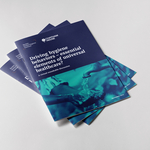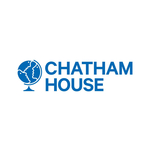
Chatham House Report Concludes That Changing Hygiene Behaviors Can Lead to Better Health, for the Individual, the Wider Population, and the Economy
Yet, even with the lessons from COVID-19, hygiene still struggles to gain political importance. Why?
LONDON--(BUSINESS WIRE)--A lack of safe water, sanitation, and hygiene results not only in loss of dignity, safety, health, and education, but also economic potential. It is at the heart of “human capital,” not only for the current working generation, but for generations to come. However, the subject of hygiene has never been near the top of the political agenda, something that needs to change. More global efforts are needed to link hygiene with policy-influencing outcomes and establish return on investment (ROI) to drive policy change. While it is evident that progress is being made on an international basis, more still needs to be done.


This was the conclusion from an assembled group of 32 experts in their respective fields within health and health policy, many of them from low-and middle- income countries (LMICs), during a round table discussion organized and facilitated by Reckitt Global Health Institute (RGHI) and global think tank Chatham House. The discussions took place under Chatham House’s Commission for Universal Health, which is on its agenda until 2024, and jointly chaired by Helen Clark, the former prime minister of New Zealand, and Jakaya Kikwete, former president of Tanzania.
The group had been invited to discuss a variety of fundamental topics in the forum, Driving hygiene behaviors – essential elements of universal healthcare? The discussion took place under the Chatham House Rule. Participants are free to use the information received, but neither the identity nor the affiliation of the speaker(s), nor that of any other participant, may be revealed.
The panel of experts, which included politicians, policymakers, academics, physicians, behavior change experts, and others representing international charities and Ministries of Health concluded that investments are needed beyond research. Firstly, to build workable, scalable hygiene interventions, and secondly to build ‘customer demand’ from communities that will put pressure on governments to supply hygiene infrastructure.
Simon Sinclair, Executive Director of RGHI said: “Defining and quantifying the impact of hygiene measures, and learning how to implement them at scale, is imperative if hygiene is to be built successfully into national health systems.”
The group conceded that while hygiene will always be included within the WASH community, there is an increasingly urgent need to strengthen its presence to ensure areas such as menstrual and respiratory hygiene have a place within the conversation at national levels. Building a universal understanding of the wider scope of ‘hygiene’ is essential. Hygiene needs to be seen as an essential part of the connected universal healthcare agenda.
Developments in pharmaceutical options in the 20th through to 21st centuries have diluted the focus on basic hygiene as an intervention. The recent emergence of novel coronaviruses causing SARS, MERS, and COVID, and the lack of immediate pharmaceutical solutions, has brought hygiene sharply to the front of our minds once again. While the emphasis of conventional hygiene practices has been on fecal-oral diseases, the COVID pandemic has prompted a focus on respiratory hygiene practices beyond handwashing/keeping clean and relevant to transmission of acute respiratory infections (ARIs).
Simon Sinclair continued “Global community leaders have work ahead of them to expand access to good hygiene. The UN has set access to clean water, sanitation, and hygiene as a sustainable development goal, but sound sanitation services reached little more than half the world’s population as of 2020. While hygiene has long been seen as beneficial to health, it now needs to be understood as a connected part of the basic requirements in building national health systems.”
The investment case for making hygiene a critical element of universal health was a pivotal part of the conversation and a call to action going forward.
Notes to editors:
To download the report: RGHI website
RGHI, a not-for-profit foundation, was established in 2020 with a multi-year $25 million grant from Reckitt. RGHI is focused on plugging significant gaps in the health research space and improving access to information that will bridge epidemiology, public health, and behaviour change.
Contacts
To arrange an interview with RGHI / Chatham House
Sarah Roberts
sarah_r@mail.rghi.org
Editor Details
-
Company:
- Businesswire
